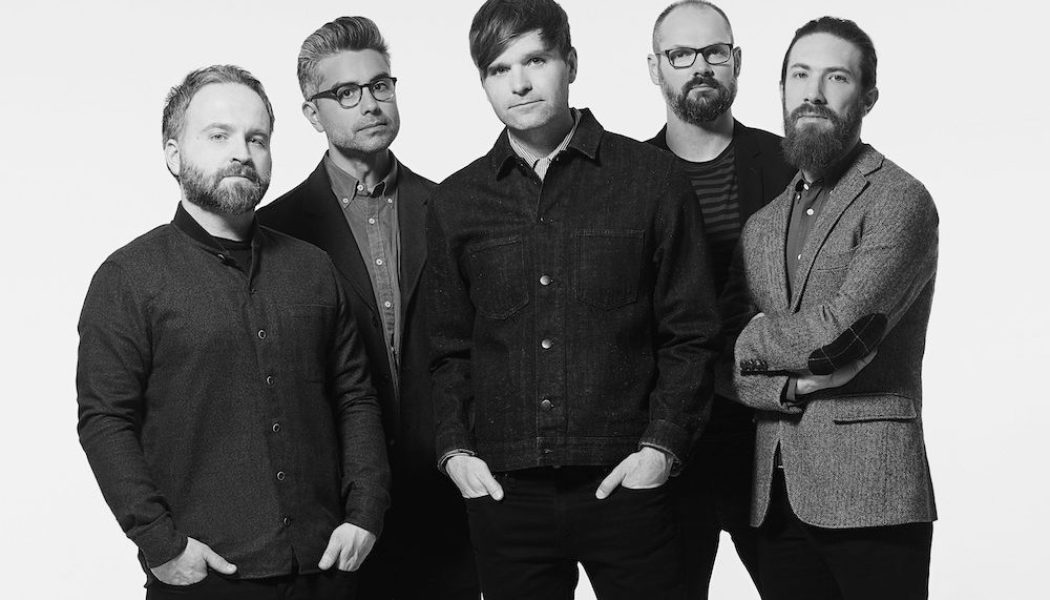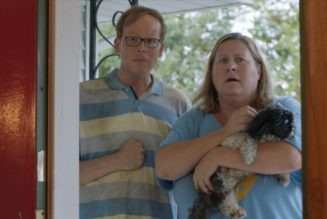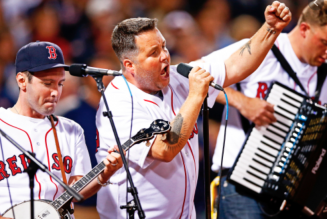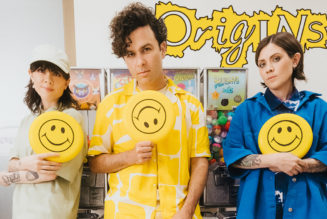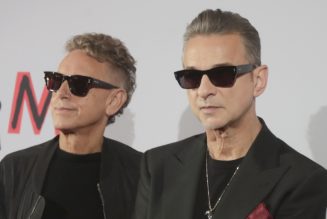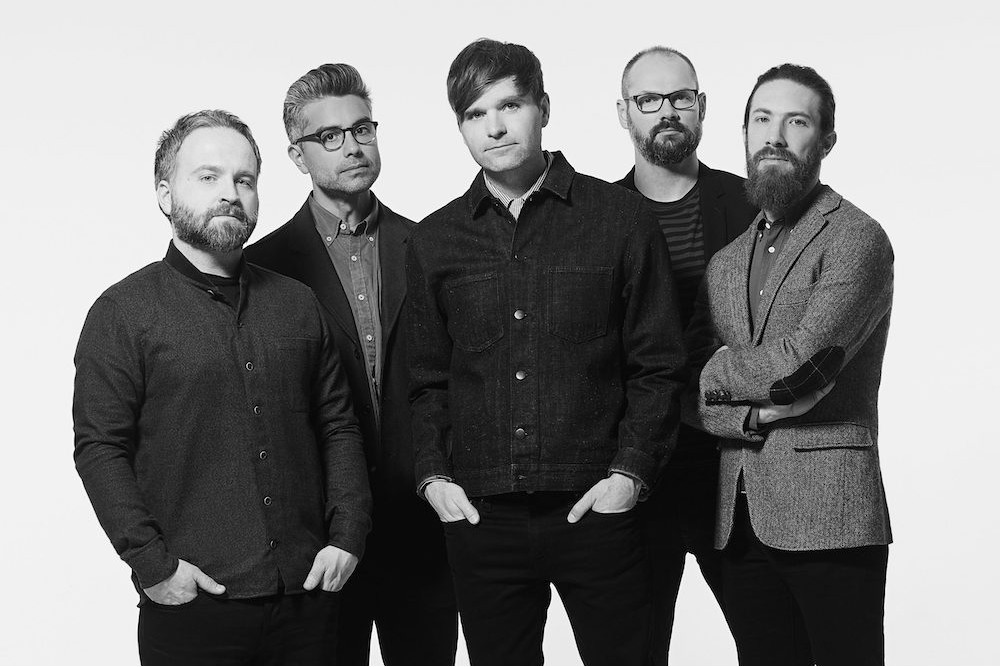
Early in the pandemic, Death Cab for Cutie‘s Ben Gibbard seemed to be ahead of the curve. In March, he launched a solo performance stream, Live From Home, helping blueprint a detour for musicians swept off the road. But with the camera switched off, he was just as confused as anyone else — and it took him a while to find his artistic footing.
“The first couple months, especially when I was doing the livestreams — well, we all were there. There was this feeling of, ‘This is gonna last a month, and then we’ll get back to real life,’” Gibbard tells SPIN. “Then there was the panic of every day: ‘You can’t touch this; don’t do that; you’ll die if you do that.’ With the amount of anxiety, and also the thought that this would be a short-term thing, I did hardly any writing.”
There were a lot of cancelations, of course: some solo gigs, along with a planned Berlin vacation with his wife to see The Jesus and Mary Chain play their 1987 LP, Darklands. (“[That’s], like, our record,” he says. “When we got married, one of our first dances was to a song on Darklands.”) But once our new reality settled in, he encountered a surge of creativity — one aided by the assembly line, file-swapping process Death Cab for Cutie used to kick-start an as-yet-unfinished LP, which will eventually follow 2018’s Thank You for Today.
In the below conversation (which accompanied our discussion of the new Photo Album reissue), Gibbard and bassist Nick Harmer walked us through that intriguing writing process — and gently teased the music it yielded.
The following conversation has been condensed and edited from two separate interviews.
During the pandemic, it seems like some musicians have been paralyzed creatively while others are flourishing. Ben, how much have you been writing lately?
Gibbard: I threw this idea at the band: I’ll say I’ll invented it; it was my idea. [Laughs.] [It was] this weekly songwriting exercise where someone, on Monday, would be tasked with making a beat or a piece of music or a guitar riff, and he would send it to the next person on a Tuesday, and that person would have the entire day to work on it — and so on and so forth until Friday, when the person who was finishing the song had to mix it and have it done.
We were doing this at our home studios, and everyone had complete editorial oversight. If the song got to me on a Thursday, and it was kind of an upbeat song but I want to make it sound like Massive Attack, I’d make it sound like Massive Attack. Someone might be like, “What the fuck? You changed my shit!” And I’d be like, “Those are the rules! You can do whatever you want.” I was writing a lot on my own, and we’d get a lot of stuff that turned out really well, and a lot of it’s gonna be on the next record.
I hate the word “musical” because that’s really not what it was, but I also wrote a “theater piece that has songs” with Daniel Handler and Torquil Campbell from Stars. I also did some stuff with Tycho, and I sang on the new Lala Lala record. I was trying to stay as busy as possible. I had some really good bursts of creativity in that period, then also a month/six weeks at a time where I was just dreading the inevitable collapse of civilization, as I’m sure we all were. [Laughs.]
The next Death Cab record isn’t going to be, like, a pandemic special. I think we were very all acutely aware that the last thing people are going to want to hear about in late 2022, or whenever we get the record out, are things that happened two years ago — we tried to stay on universal themes of love and life and death and everything else.
That’s a unique writing arrangement for Death Cab. Did you get some interesting results?
Gibbard: For sure. We’re all at varying levels of proficiency in our home studios, and I’m probably the lowest. But Jason [McGerr] and Zac [Rae] and Dave [Depper] — and Nick, I guess, too — have professional-grade home studios. Because we would go out of order, it’s not like I would write a song on Monday with guitar and vocals and then send it to Nick, who puts a bass line on it. Zac might send a piece of piano music to Nick, who puts a bass line on it; then he sends it to Jason, who puts drums on it. It’s not the typical order.
The most interesting things were, like, Nick sends a bass line with a drum machine on Monday — and by Friday, he would have no idea what it would sound like. For me as a songwriter, it was really good to get out of my own prompts, melodically and lyrically and everything else. I always write by playing guitar and singing mumbo-jumbo and then building it from there. In this case, the songs are starting from different places, and people have different harmonic [approaches] — their hands go to different places on the piano or guitar.
[embedded content][embedded content]
You sound pretty confident in the songs you wound up with.
Gibbard: I’m not gonna hype this record we’re about to make, like it’s…I think it’s gonna be a really good record. I’ll just say that. But it was good for everybody to get out of their comfort zones. In that sense, the pandemic [disruption] was really good for us because we need would have done it this way if we hadn’t been forced to do it.
And a lot of weeks we got garbage. But sometimes we’d be like, “Holy fuck, this song is really good!” And it started from a place we never thought we’d get to by the end of the week. The longer we went in the week, the less idea you had of what the song was going to sound like on Friday. That was always fun — everyone was waiting for whoever touched the song last to put the mix up in the Dropbox because that’s gonna be totally different from what people on Monday and Tuesday thought it was gonna be like.
Nick, how do you feel about the progress so far?
Harmer: It’s been going great. You might detect a note of surprise in my voice because on some levels I didn’t expect it to. At first, it was like, “Look, Zac lives in Los Angeles. Dave lives in Portland. Jason lives in Bellingham [Washington]. Ben and I live in Seattle across town. But the world is telling us we can’t be in the same room together. What are we gonna do? How do you make music as a band when you rely so much on the physical chemistry between the people with their hands on the instruments? How are we gonna do this? And how long are we gonna have to do this?” There were so many unanswered questions. At a certain point, we were like, “This is the only way we could possibly try to do something like this. It’s either gonna really work or it’s totally not, and we’re just gonna be cast off into the wind and not be able to do anything.”
And it really worked! It was a really fun way to kind of get through a week at a time. It was a really fun, powerful way to stay connected to my bandmates in a dark time — in a way I didn’t expect, that went beyond a phone call or an email. I could really connect with them through my headphones, in my space, and really focus in on what they were giving me and react in real time.
How did it feel working on ideas in this assembly line style? Was that weird? Inspiring?
Harmer: Only having a day to do it helped me put aside some of my own insecurities or moments of doubt, like “I have to get this done because the next dude needs it. I can’t just sleep on this.” We each wanted to do the raddest shit so the next person feels inspired. Before we knew it, we’d built up a head of steam and a body of work that was starting to sound really great. We have a lot of songs to sort through when it comes to making this record — I don’t even know how we’re gonna pare it down at this point, but we have to. [Laughs.]
We’d gotten so adept at working that way that when it came time to get involved with the election of 2020 and do The Georgia E.P. that we did for [Stacey Abrams’] Fair Fight Action [organization], we put that together in just over a week — “Let’s send out drum tracks. Let’s do the version of the demo-writing that we’ve been doing, but let’s track it like we’re in the studio for real, piece by piece. Now we know how this works, and we can make it work.” It grew out of the writing process that is informing how the next record is gonna come together.
[embedded content][embedded content]
Did the new album demos stay in that home-recorded form, or are you guys planning to re-record them?
Harmer: It was just a way to get the songs together, and we’re gonna get into the studio and unpack them. Some of the things are really working and we’re not gonna change things very much. Some of them, we already know we’re changing a substantial amount of it. But there’s a kernel there that we really like. When I say we have a lot of tracks — it always feels weird to brag, but the last time we counted, I think we were maybe close to 100 demos.
Wow!
Harmer: Yeah, we were workin’! Not all of them are in contention for an A-list album, but there are a lot of ideas to sift through and figure out, so it’s going to be crucial for us to work with someone who’s gonna help us with that process the next time. We’ll see how it goes. And then we’ll see what we do with all the extras. I think it’ll be a really fun time in 2022/2023 — I think we’re gonna see a lot of double-albums. A lot of people I know were able to be really productive during that time.
I also know a lot of [others] who weren’t able to because it was a hard time for some people, psychologically and otherwise. I’ve talked to some songwriters who are like, “Similar to you, I have so many things I have to sort through. I’m gonna put it all out!” I also know some people who are like, “I’ve written two songs, and I don’t even know what they’re about.” I don’t want it to sound like I’m bragging or something. We stumbled across something that worked for us, and it really helped us connect as a band and continue to work as a band. It was a “right time, right place” kind of thing.
I know there are probably 100 things up in the air right now, but do you have a general timeline for the album?
Harmer: We’re gonna dig into it as soon as we can. We’re trying to figure out who and where. When that stuff gets solidified, we’re very eager to get going on that. Also, part of this has been us waiting to read the world and see what’s going on with the pandemic. We want to be able to tour when we finally do put that record out. Now that we’re starting to get a little more clarity around that, I think we’re starting to be able to plan tentatively and hope that 2022 into 2023 become more public moments for us.
